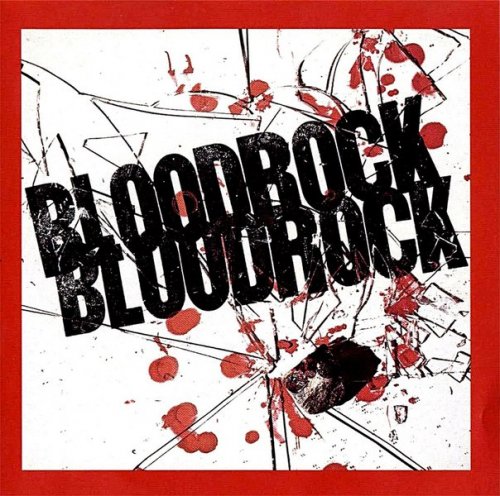McGuinness Flint • Gallagher & Lyle - 6 Albums Mini LP SHM-CD Universal Music Japan 2016
McGuinness Flint • Gallagher "> Performer: McGuinness Flint ------------------------ Gallagher "> 1970 McGuinness Flint ● 1971 Happy Birthday, Ruthy Baby (Mini LP SHM-CD Universal Music Japan 2016) ------------------------ 1972 Gallagher And Lyle ● 1973 Willie And The Rapdog 1973 Seeds ● 1974 The Last Cowboy (Mini LP SHM-CD Universal Music Japan 2016) Info: Universal Music Japan Cardboard Sleeve (Mini LP) / SHM-CD / Limited Release Catalog SHM-CDs: UICY-77741~46 Made in Japan

McGuinness Flint • Gallagher & Lyle - 6 Albums Mini LP SHM-CD Universal Music Japan 2016
McGuinness Flint • Gallagher "> Performer: McGuinness Flint ------------------------ Gallagher "> 1970 McGuinness Flint ● 1971 Happy Birthday, Ruthy Baby (Mini LP SHM-CD Universal Music Japan 2016) ------------------------ 1972 Gallagher And Lyle ● 1973 Willie And The Rapdog 1973 Seeds ● 1974 The Last Cowboy (Mini LP SHM-CD Universal Music Japan 2016) Info: Universal Music Japan Cardboard Sleeve (Mini LP) / SHM-CD / Limited Release Catalog SHM-CDs: UICY-77741~46 Made in Japan
02 10, 2025
Third Ear Band / Curved Air: Progressive Rock Collection - Warner Music Japan 2015
Progressive Rock SHM-CD Collection Warner Music Japan 2015 Performer / Albums: Third Ear Band 1969 Alchemy ● 1970 Third Ear Band ● 1972 Music From Macbeth (SHM-CD Warner Music Japan 2015) ------------- Curved Air 1970 Air Conditioning ● 1971 Second Album ● 1975 Phantasmagoria (SHM-CD Warner Music Japan 2015) Info: Parlophone Records / Warner Music Japan Progressive Rock SHM-CD Collection Edition Series Catalog SHM-CDs: WPCR-16334~36 / WPCR-16299~301 Made in Japan Dynamic Range: 11 / 8 / 11 • 7

Third Ear Band / Curved Air: Progressive Rock Collection - Warner Music Japan 2015
Progressive Rock SHM-CD Collection Warner Music Japan 2015 Performer / Albums: Third Ear Band 1969 Alchemy ● 1970 Third Ear Band ● 1972 Music From Macbeth (SHM-CD Warner Music Japan 2015) ------------- Curved Air 1970 Air Conditioning ● 1971 Second Album ● 1975 Phantasmagoria (SHM-CD Warner Music Japan 2015) Info: Parlophone Records / Warner Music Japan Progressive Rock SHM-CD Collection Edition Series Catalog SHM-CDs: WPCR-16334~36 / WPCR-16299~301 Made in Japan Dynamic Range: 11 / 8 / 11 • 7
02 10, 2025
The Gods: 2 Albums Mini LP CD - 1968 Genesis / 1969 To Samuel A Son - EMI Music Japan 2009
Lossless Galaxy Release The Gods: 2 Albums Mini LP CD 1968 Genesis / 1969 To Samuel A Son EMI Music Japan 2009 Performer: The Gods Albums: -------------- ☆☆☆☆☆☆☆☆☆☆☆ -------------- 1968 Genesis EMI Music Japan Mini LP CD TOCP-70739 -------------- ☆☆☆☆☆☆☆☆☆☆☆ -------------- 1969 To Samuel A Son EMI Music Japan Mini LP CD TOCP-70740 -------------- ☆☆☆☆☆☆☆☆☆☆☆ -------------- Info: EMI Music Japan Inc. Cardboard Sleeve (Mini LP) / Reissue Masa Ito Collection / EMI Capitol Rock Deep Catalogues
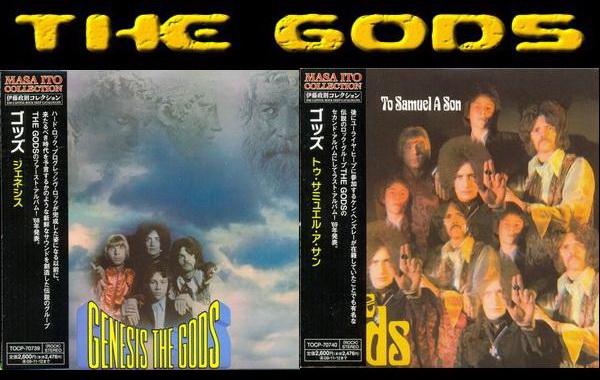
The Gods: 2 Albums Mini LP CD - 1968 Genesis / 1969 To Samuel A Son - EMI Music Japan 2009
Lossless Galaxy Release The Gods: 2 Albums Mini LP CD 1968 Genesis / 1969 To Samuel A Son EMI Music Japan 2009 Performer: The Gods Albums: -------------- ☆☆☆☆☆☆☆☆☆☆☆ -------------- 1968 Genesis EMI Music Japan Mini LP CD TOCP-70739 -------------- ☆☆☆☆☆☆☆☆☆☆☆ -------------- 1969 To Samuel A Son EMI Music Japan Mini LP CD TOCP-70740 -------------- ☆☆☆☆☆☆☆☆☆☆☆ -------------- Info: EMI Music Japan Inc. Cardboard Sleeve (Mini LP) / Reissue Masa Ito Collection / EMI Capitol Rock Deep Catalogues
02 10, 2025
Жанры
Lossless Galaxy Release
Русская музыка
--Поп
--Рок
--Панк
--Альтернатива
--Металл
--Рэп, Хип-Хоп, R'n'B
--Джаз и Блюз
--Фолк
--Шансон, Авторская песня
--СССР
Зарубежная музыка
--Pop
--Rock
--Hard Rock
--Progressive & Art-Rock
--Pop-Rock & Soft Rock
--Instrumental Rock
--Heavy, Traditional, Industrial Metal
--Power, Gothic, Sympho Metal
--Thrash, Speed, Groove, Modern Metal
--Death, Melodic Death, Doom, Dark Metal
--Black, Pagan, Folk, Viking Metal
--Alternative
--Punk
--Disco, Eurodance
--Rap, Hip Hop, R'n'B
--Reggae, Ska, Dub
--Jazz, Blues, Soul
--Folk, Country, Ethnic
--Electronic, Ambient, New Wave
--House, Techno, Trance
Другие жанры
--New Age, Relax, Meditative & Flamenco
--Chillout, Lounge, Downtempo, Trip-Hop
--Drum & Bass, Jungle, Breakbeat, IDM
--Classical / Классическая музыка
--Soundtrack
--Музыкальные сказки
Vinyl Rip
HI-Res / DVD-Audio / DTS
--SACD
--DSD
--DVD-Audio
Сборники Lossless-Galaxy
Альбомы 2022
Альбомы 2023
Альбомы 2024
Теги
1st Press 2022 2023 2024 2025 70... AOR Black Metal Blues Blues Rock Bootleg Series Classic Rock Death Metal Discography Exclusive for Lossless-Galaxy Folk Rock Fusion Hard Rock Heavy Metal Hi-Res Japanese Edition Jazz Jazz Rock lossless Melodic Death Metal Melodic Rock Modern Electric Blues Pop Pop Rock Power Metal Prog Rock Progressive Metal Progressive Rock Psych Rock Psychedelic Rock Rock SACD Symphonic Metal Thrash Metal Дискографии от KoGGaN
Архивы
Опрос
В каком формате хотели бы видеть релизы на сайте ?
 Автор: LeddZepp, 16 сентября 2021, Комментариев: 0, Просмотров: 553
Автор: LeddZepp, 16 сентября 2021, Комментариев: 0, Просмотров: 553Bloodrock - Bloodrock 2 (1970)
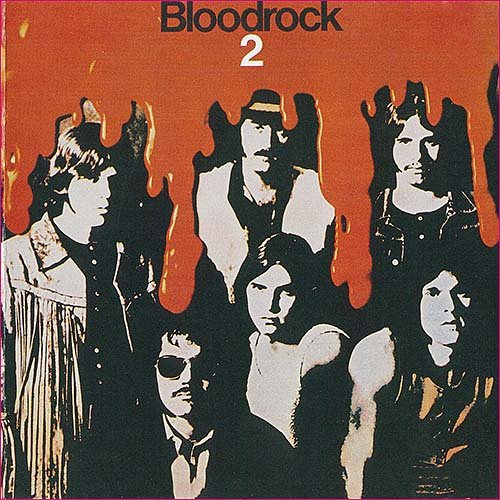
Year: October 1970 (CD 1995)
Label: Repertoire Records (Germany), REP 4335-WY
Style: Hard Rock, Rock
Country: Fort Worth, Texas, U.S. (1969–1975)
Time: 42:52
Format: Flac Tracks 16/44,1 kHz
Size: 279 Mb
Bloodrock — американская хард-рок-группа из города Форт-Уэрт. За пять лет своего существования группа выпустила шесть студийных альбомов и смогла добиться некоторого успеха в чартах.
История Bloodrock начинается в 1963 году, когда Джим Ратледж (вокал, ударные), Ник Тейлор (ритм-гитара, бэк-вокал), Эд Гранди (бас-гитара, бэк-вокал) и Дин Паркс (соло-гитара) основали группу The Naturals. Группа выпустила один сингл и вскоре сменила название на Crowd + 1, под новым названием также выпустила несколько синглов. К 1969 году Дина Паркса сменил Ли Пикенс, а также добавился клавишник Стиви Хилл. С их приходом название меняется на Bloodrock.
Вскоре их замечает менеджер и продюсер Grand Funk Railroad Терри Найт. Он становится продюсером их одноименного дебютного альбома, выпущенного в марте 1970 года. Музыка на альбоме представляет собой хард-рок с элементами психоделик-рока и раннего хэви-метала. Альбом занимает 160 строчку в чарте Billboard. В написании песен к альбому принимал участие техасский музыкант Джон Нитзингер. Его песни также встречаются на последующих альбомах группы до Bloodrock U.S.A. включительно. Несмотря на это, он никогда не был официальным участником Bloodrock.
После записи альбома Ратледж целиком сосредотачивается на вокале и на место ударника приходит Рик Кобб. В октябре 1970 выходит следующий альбом Bloodrock 2, который достигает 21 места в чарте. Успеху альбома также способствовала песня "D.O.A.", сингл с которой занял 36 место в Billboard Hot 100. 3 января 1990 года Bloodrock 2 получил "золотой" статус.
(ru.wikipedia.org/wiki/Bloodrock)
01. Lucky In The Morning (05:46)
02. Cheater (06:48)
03. Sable And Pearl (04:56)
04. Fallin' (04:03)
05. Children's Heritage (03:32)
06. Dier Not A Lover (04:08)
07. D.O.A. (08:26)
08. Fancy Space Odyssey (05:10)




При желании можно посмотреть все мои публикации на сайте. Приятного прослушивания. Жмём и смотрим (Click to see all of my posts)!
Внимание! У Вас нет прав для просмотра скрытого текста.
Похожие новости:
Комментарии отсутствуют
Добавить комментарий!
Информация
Посетители, находящиеся в группе Гости, не могут оставлять комментарии к данной публикации.

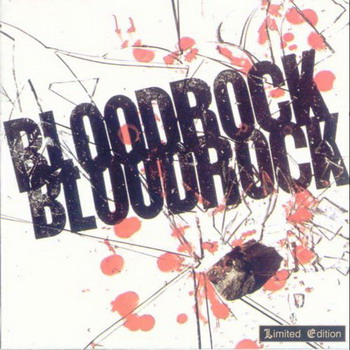
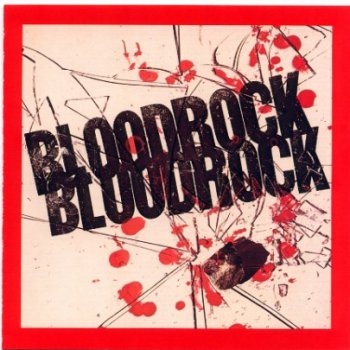
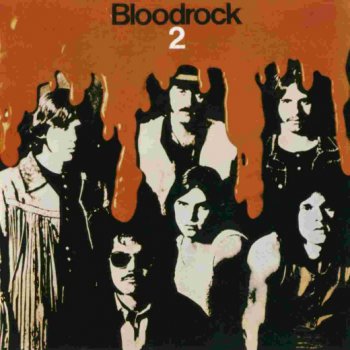
![Bloodrock - Bloodrock 2 (1970) [Vinyl Rip 24/96]](/uploads/posts/2016-11/1479447327_frontt.jpg)
